Michelle P. Maidenberg, Ph.D., MPH, LCSW-R, CGP stops by to discuss 10 mindful lessons you can use to strengthen all of the relationships in your life.
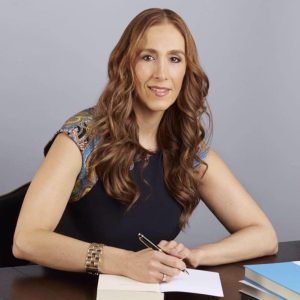 Michelle P. Maidenberg, Ph.D., MPH, LCSW-R, CGP maintains a private practice in Harrison, NY. She is an adjunct graduate professor of Mindfulness Practice at New York University. She is the president and clinical director of the Thru My Eyes Foundation, a 501c3 organization that helps individuals with life-threatening illnesses create a video legacy for their loved ones. She has advanced training in CBT, ACT, Structural Family Therapy, Mindfulness, Polyvagal Theory, and is a Level II trained Eye Movement Desensitization Reprocessing (EMDR) therapist.
Michelle P. Maidenberg, Ph.D., MPH, LCSW-R, CGP maintains a private practice in Harrison, NY. She is an adjunct graduate professor of Mindfulness Practice at New York University. She is the president and clinical director of the Thru My Eyes Foundation, a 501c3 organization that helps individuals with life-threatening illnesses create a video legacy for their loved ones. She has advanced training in CBT, ACT, Structural Family Therapy, Mindfulness, Polyvagal Theory, and is a Level II trained Eye Movement Desensitization Reprocessing (EMDR) therapist.
Dr. Maidenberg is a contributing editor of GROUP, the journal of the Eastern Group Psychotherapy Society. She has also published in varied professional journals and was quoted in The New York Times, the Daily News, Fitness, Woman’s Day, Parents, and many other publications. Her book Free Your Child from Overeating: 53 Mind-Body Strategies for Lifelong Health utilizes strategies underpinned in Cognitive-Behavioral Therapy (CBT), Acceptance and Commitment Therapy (ACT), and Mindfulness. Her new book is ACE Your Life: Unleash Your Best Self and Live the Life You Want.
Click for more information on Dr. Maidenberg:
Visit her website
Check out her blog on Psychology Today
Purchase her books
Podcast: Play in new window | Download
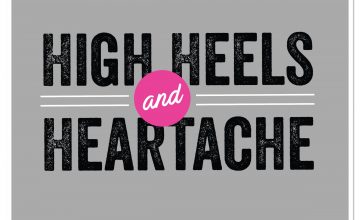
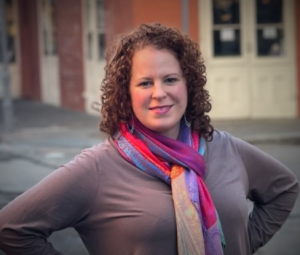 Kaytee is a psychotherapist, author, and consultant with a passion for working with survivors of relationship and family trauma. Her first book, Invisible Bruises: How a Better Understanding of the Patterns of Domestic Violence Can Help Survivors Navigate the Legal System, released in 2021, sheds light on the ways that the legal system can perpetuate the cycle of domestic violence by failing to recognize patterns that would otherwise hold perpetrators accountable and protect survivors. Her new book, It’s not High Conflict, It’s Post Separation Abuse is set to be released in February.
Kaytee is a psychotherapist, author, and consultant with a passion for working with survivors of relationship and family trauma. Her first book, Invisible Bruises: How a Better Understanding of the Patterns of Domestic Violence Can Help Survivors Navigate the Legal System, released in 2021, sheds light on the ways that the legal system can perpetuate the cycle of domestic violence by failing to recognize patterns that would otherwise hold perpetrators accountable and protect survivors. Her new book, It’s not High Conflict, It’s Post Separation Abuse is set to be released in February.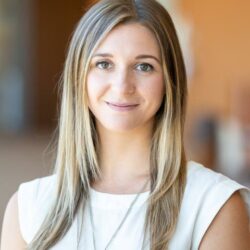 Dr. Zoe Ross-Nash (she/her) earned her PsyD in Clinical Psychology at Nova Southeastern University and completed an APA accredited internship at the University of California, Davis in the Eating Disorder Emphasis. Ross-Nash won the Division 29 Student Excellence in Clinical Practice Award in 2022 and is the Associate Editor for Website Content for the division. Zoe’s clinical interests include trauma, eating disorders, wellness, mentorship, and advocacy. She is originally from Allendale, New Jersey and earned her bachelor’s degree in Psychology with a minor in Human Service Studies and Dance from Elon University. In her spare time, Zoe likes to practice yoga and ballet, read and write poetry, and try new restaurants with her loved ones.
Dr. Zoe Ross-Nash (she/her) earned her PsyD in Clinical Psychology at Nova Southeastern University and completed an APA accredited internship at the University of California, Davis in the Eating Disorder Emphasis. Ross-Nash won the Division 29 Student Excellence in Clinical Practice Award in 2022 and is the Associate Editor for Website Content for the division. Zoe’s clinical interests include trauma, eating disorders, wellness, mentorship, and advocacy. She is originally from Allendale, New Jersey and earned her bachelor’s degree in Psychology with a minor in Human Service Studies and Dance from Elon University. In her spare time, Zoe likes to practice yoga and ballet, read and write poetry, and try new restaurants with her loved ones.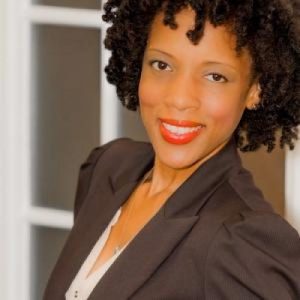
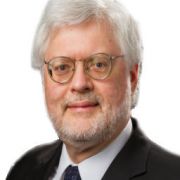 John Cline, Ph.D., D,ABSM, FAASM, is a licensed clinical psychologist and is board certified in clinical sleep disorders. He is a diplomate of the American Board of Sleep. He is a member of the American Association for the Advancement of Science, the New York Academy of Sciences, and the American Psychological Association; and a fellow of the American Academy of Sleep Medicine and the Connecticut Psychological Association. He is a past president of the Connecticut Psychological Association and served as a member of the Council of Representatives of the American Psychological Association. In 1996 he was awarded the American Psychological Association’s Karl F. Heiser Presidential Award for Advocacy in Psychology. He is an Assistant Professor of Clinical Psychiatry at the Yale Medical School. While actively working in sleep medicine, health psychology and general clinical psychology he also writes the “Sleepless in America” blog for Psychology Today Magazine.
John Cline, Ph.D., D,ABSM, FAASM, is a licensed clinical psychologist and is board certified in clinical sleep disorders. He is a diplomate of the American Board of Sleep. He is a member of the American Association for the Advancement of Science, the New York Academy of Sciences, and the American Psychological Association; and a fellow of the American Academy of Sleep Medicine and the Connecticut Psychological Association. He is a past president of the Connecticut Psychological Association and served as a member of the Council of Representatives of the American Psychological Association. In 1996 he was awarded the American Psychological Association’s Karl F. Heiser Presidential Award for Advocacy in Psychology. He is an Assistant Professor of Clinical Psychiatry at the Yale Medical School. While actively working in sleep medicine, health psychology and general clinical psychology he also writes the “Sleepless in America” blog for Psychology Today Magazine.